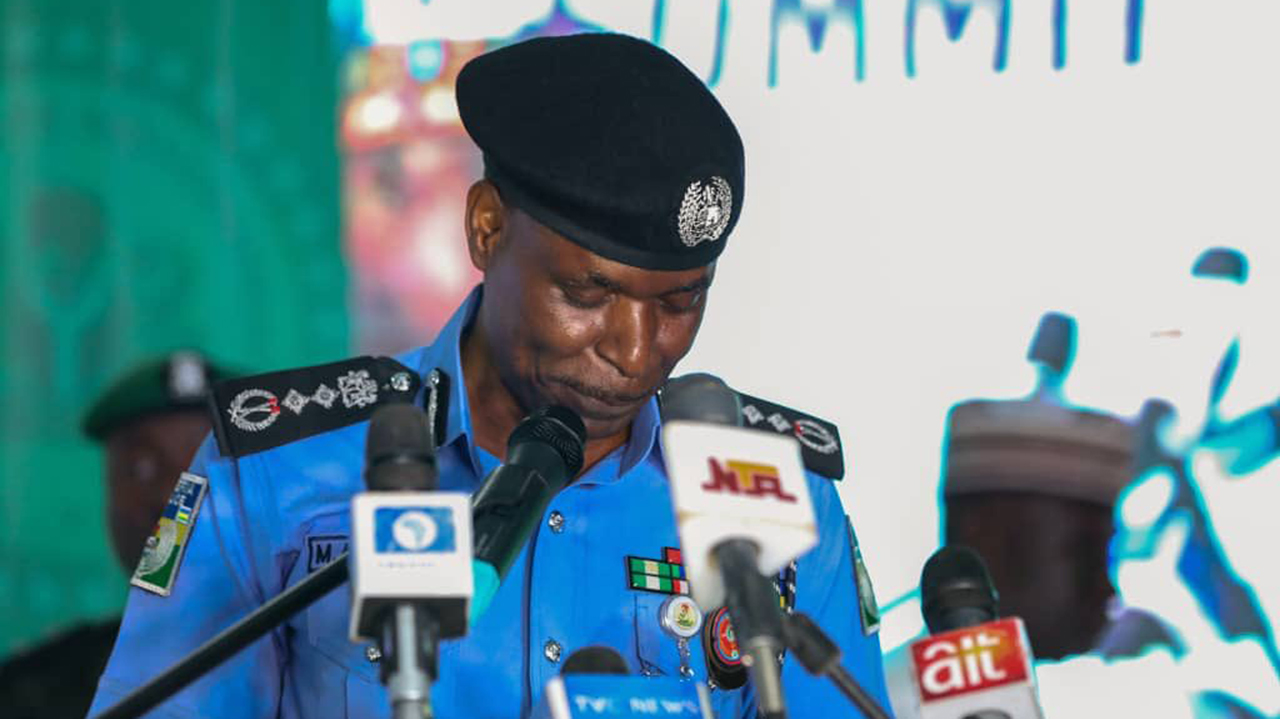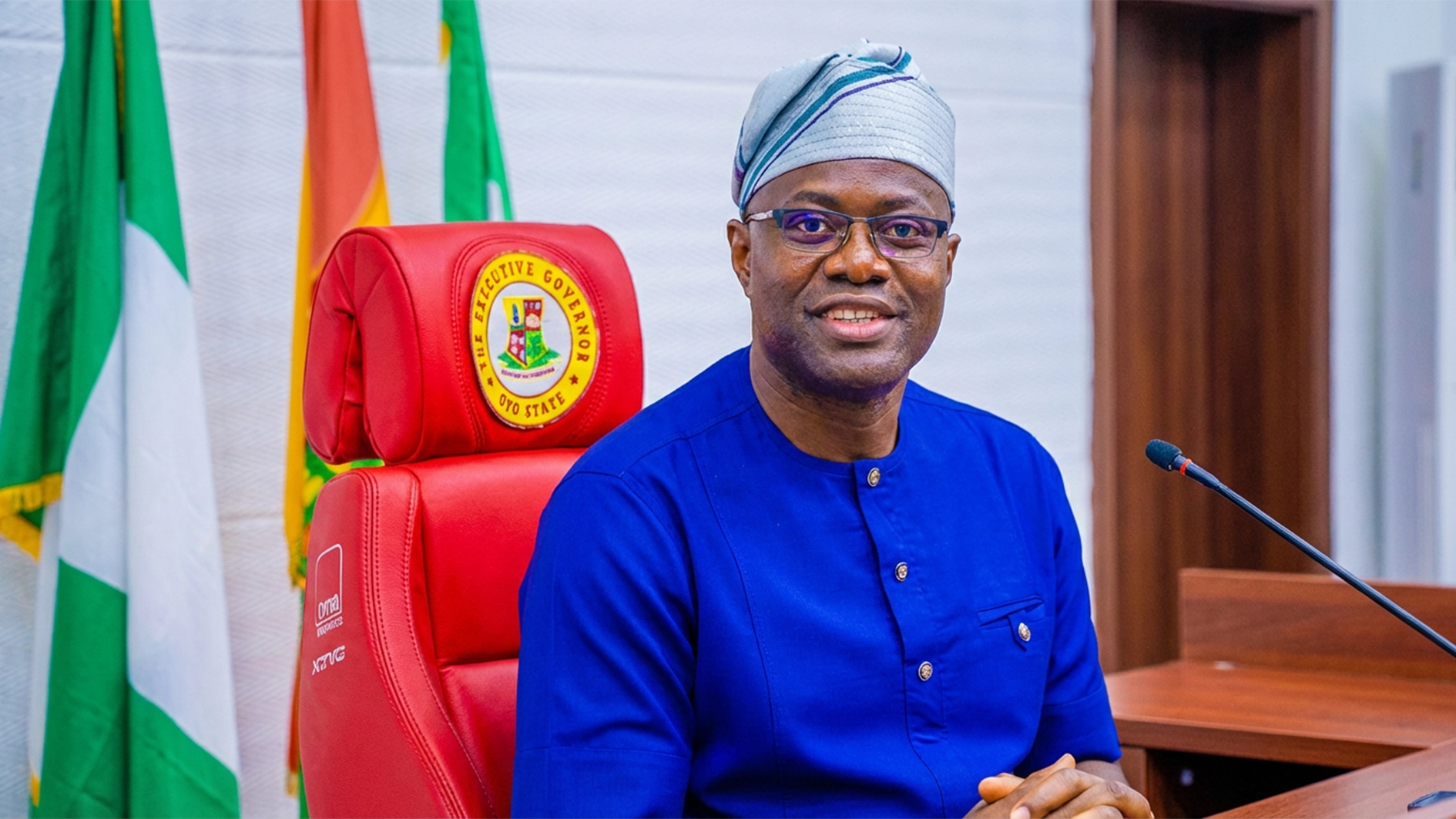
The echoes of the recent #EndSARS protests and agitation against police brutality have continued to reverberate in renewed debates over calls for the decentralization of policing and establishment of state policing approach to the provision of security of life and property.
Majority of stakeholders, who spoke to The Guardian on the development stressed the need for the federal Government to expeditiously consider the calls for state police as a way of addressing the shortcomings of the central policing system, especially failures in crime prevention, human right abuses, lawlessness as well as declining welfare of police personnel.
However, contrary to the general belief that the EndSARS protests have underscored the imperatives of state policing, a retired Commissioner of Police and delegate to the 2014 National Conference, Mr. Samuel Adetuyi, noted that the clamour for state policing may be appealing at the moment, due to youth unrest under the auspices of #ENDSARS protest, but may not salvage the sordid working conditions of Nigeria police.
The former Police Commissioner, who is also a lawyer and frontline advocate for police reforms, said the new wave of campaign for state policing would rather worsen the welfare of police personnel beyond expectations if necessary steps are not taken.
He agreed that state police is a fundamental imperative and feature of a country operating a federal constitution, taking into account how administration, responsibility and control of the police will follow a structure defined between the federating units.
He said: “Responsibility, areas of coverage, finance and other such arrangements fully integrated. All areas of overlap and conflict will, as of necessity, be worked out and resolved. In my humble opinion, adopting a state police arrangement is not a magic wand that will guarantee efficiency and effectiveness of the Police.
“If Nigerian government and Nigerians still maintain the level of disdain and contempt for the organisation, nothing will change. In the 21st Century that we are in now, security strategies are technology-driven and citizens accept its notion that it is a shared responsibility.”
Speaking in a similar vein, the Head of Department (HOD) of Political Science, University of Ibadan, Prof. Remi Ayede, said state police is not the issue at stake.
Prof. Ayede insisted that as far as state governors are concerned, they could not be trusted with state police. He argued: “If the state governments were in charge with their state police, probably they would have muzzled the demonstrations in their various states. I don’t see any argument arising from this situation for state police.
“I’m not totally opposed to state police, what I’m saying is that what has happened is not a justification for state police, neither should we rush into state police. We should look very carefully about the situation on the ground. We should think about the appropriate policing method to address the problem.
“It does not have to be state police. It can be all kinds of policing. There is community policing. There is local government policing. There is highway policing. There are different varieties of policing methods we need to consider, not just state police.”
But, differing with Adetuyi and Ayede, a legal practitioner, Jerry Ugwu, insisted that decentralizing the nation’s policing architecture was long overdue, adding “what we need as a matter of urgency is not just to disband the SARS.”
Ugwu stated: “We need total overhaul and reorientation of the entire police architecture. What Nigerian youths demonstrated in the past few weeks, is the total loss of confidence in the police. They demonstrated that it is almost needless to have police formation in Nigeria. They demonstrated that they could secure the society better without the police.
“So, going by these arguments, there is a need to give a lift to the police by way of training to enable them to act in line with democratic tenets. You can see that at the moment, no policeman can freely wear the police uniform on the streets. Most state governors have imposed curfew as a way of curtailing rising vandalism that came with the protests, but there are no policemen to enforce the order. This is what you get, when you compromise your responsibilities and allow the masses to dictate the mood for you.”
While recalling how he had long been advocating for state policing, Ugwu maintained that such could allow the locals the opportunity to own and control their own security.
He stressed however, that doing so under the atmosphere thrown up by the #EndSARS protests was not the best, since according to him, “We need to allow the police to regain their confidence. This is so because there is no way you will wish away those currently serving in the police. They may have their shortfalls, but that is because they believe that they are strangers in the environment where they operate.”
The legal practitioner expressed the belief that when retrained and posted to areas where they know that they are in the midst of their people, that would reinforce that spirit of sacrifice in the police officers.
In a bid to highlight the deep-seated problems with the policing structure, he noted how the protests in Enugu State led to the attack of a police station at Maryland axis as well as killing of a police officer at Abakpa Nike, even as the protesters ensured that various police checkpoints were dismantled while the officials were chased into the stations.
Also speaking on how the EndSARS protest has bolstered the agitations for state policing, a Human Rights Lawyer, Angus Chukwuka, said the protest showed that people are dissatisfied with the performances of Police at the federal level, adding that it exposed its weaknesses.
Similarly, a right activist, Director of Programmes, Centre for Environment, Human Rights and Development (CEHRD), Styvn Obodoekwe, reasoned that the EndSARS protest opened people’s eyes to the failure of the Nigerian police force.
He stated: “Talking of police reform, one of the key issues is community policing. The youths even declared their willingness to play their roles to ensure community policing succeeds.
“The movement has made it clear that community, which is central to police reform is inevitable. Security is everybody’s business and it’s more effective when communities are involved. The problem with SARS and other special police units is that they listen to, take orders from and are answerable to persons who are very far away and detached from the areas they cover.”
He stressed that #EndSARS has made “the clamour for police reform a global issue that even those who did not see the need for the reforms now know, through the protests, that police reform is key to effective policing.”
Similarly, a Human Rights Activist, and the Executive Director of Youths and Environmental Advocacy Centre (YEAC), Fyneface Dumnamene, said, the EndSARS protests have not only bolstered the agitation for state Police but also the struggle for good governance, accountability in governance, youth inclusiveness and promoted the fight against corruption.
He said, “Associating the agitation for State Police with the EndSARS protests is to say that members of SARS, who are police officers would not have brutalised and abused the rights of citizens to the extent that citizens would hit the streets in protests if men of the SARS unit of the Nigerian Police were indigenous to their locality under state police.
“A police officer from a particular state under a state police formation that is known to the people of the locality is likely not going to brutalize, abuse and violate the rights of citizens, because those whose rights he may be violating would know the police officer and his family and the knowledge of that would make the police officer to carry out his duties with respect for the rights of the citizens.
“This is the remote cause of the EndSARS protests, which state police can address while the good governance, accountability, youth inclusiveness and anti-corruption are the immediate issues that the EndSARS protest can help to mitigate in Nigeria. If not for the hijacking of the EndSARS protests by hoodlums, it would have achieved more for Nigeria.”
Chairman, Rivers Civil Society Organisations, Georgewill Enefaa, said the #EndSARS campaign has exposed the rot in the Nigerian Police with central control bythe Federal Government.
Enefaa stated: “There were a lot of revelations that showed that there have been several complaints and petitions to the Inspector General of Police (IGP), but official process had delayed or stalled same, because the final authority is in Abuja, so citizens are made to wait unnecessarily.”
Georgewill maintained that the protest exposed citizens’ frustrations with central policing, adding that most citizens prefer to leave their fate to God rather than follow processes that cost so much time and resources.
On the fact that citizens unleashed their frustrations on institutions during #ENDSARS protests, especially with the police being the worse hit, a socio-political analyst, Fatai Adesokan, said the protest has indeed bolstered the agitation for state police.
Adesokan wished that the Federal Government had for once decentralized the long overdue policing system in Nigeria, even as he dismissed as invalid speculations in some quarters that state governors might use the state policing system against perceived political opposition.
A security scholar at the University of Ibadan, Prof. Oyesoji Aremu, explained that more than ever before, the #EndSARS protests made the clamour for state police more imperative in Nigeria. “For long, the practice of national Police as enshrined in the Constitution on the exclusive list, makes it unworkable given the many dynamics as they affect national security.
“The agitations against Police violence as recently witnessed, would have been less rife, if grassroots policing is practised in Nigeria. Thus, more than ever before the current national Police should be dismembered into state police structures. This is in tandem with best practices globally,” Aremu remarked.
Also an Ibadan-based legal practitioner, Fatai Akinsanmi, urged authorities, in the light of the EndSARS protest to establish State Police without delay, since according to him, the confidence in the present police system has been eroded. He noted that policing system “must ensure that majority of those to be enlisted should be from the youth population so that they will be able to contribute positively to the system, which forms the core area of their disenchantment.”
Another don, Prof. Osisioma Nwolise, said, “This is the best time for state police. I gave a lecture on state police in 2012 and until we have state police and stay in tune with all federations in the world, that is why I always say this country is not a federation. It is not a democracy. It is not a republic, because we know how federations are run and how republics are run.
“State police is part and parcel of federations. If we had state police SARS would not have degenerated to the level it did, because we are talking about supervision. In a state, the people know their police and then if we had created state police with community police, a police officer can’t start violating the rights of his people. So, if we have state police, I can tell you that this SARS problem would not have arisen at all.”
Eze Chikodili Eze, a Civil Rights Coalition Official, while reinforcing the need for state policing, stated that current police leadership ‘failed’ when it allegedly refused to look into myriad of complaints of torture and other degrading inhuman treatments meted to citizens by its officials to administer the needed punishment.
Eze stated: “The tendency was a police force that was lawless, a police force that was not responsive to the needs of the people, a police force that abandoned its core-responsibilities towards the citizens and the state.
“Are these the same group of people that you want to return to the streets tomorrow and entrust the security of the people in their hands? That to me does not make any sense.”
He disclosed that the entrenched corruption that made bribery the order of the day also compromised Police’s integrity, stressing, “Even with the protests that have trailed their activities, I do not think it will change and make them serve the people better.”
The rights activist insisted that with what has happened to the integrity of the Police Force during the protest against the disbanded SARS, there was need to localize police operations, in such a way to leave its control and management in the hands of the people.
“When you go into any community in Igbo land, they will tell you who a criminal is and how they have survived the person. That is security. They know what is expected of them and how to recover whatever any member of the community loses,” he added.
The convener of Ikale Youth Renaissance, Adekunle Koledoye, noted that although there have always been conversations around state policing before the current ENDSARS protest, “this in a way makes another case for that.”
“Firstly, if there was state policing in place, then members of the law enforcement unit will be organically sourced from the regions, creating a deeper relationship between the men in uniform and the civilian community, because of the existing social bonds/ties that exist outside the confines of their profession.
“Secondly and more importantly, is the case of control, as the spate of violence moved across the nation, governors and local community leaders were hapless in marshaling the security apparatus in their states/locality.”
Nevertheless, Koledoye emphasized that “we must also realise that with state police comes the need for more economic autonomy and self-sustenance across the various states in the federation. The big question is; how ready is Ondo State and its regions to chart their economic and social growth?
Meanwhile, Adetuyi, alongside seven others, was appointed to serve as members of the judicial panel of inquiry on police brutality set up by the Ondo State government.
About 15 months ago, he had forewarned that there would be large scale breakdown of law and order in the country to last for the next five years, thereby clamouring for total overhaul of the security architecture of the nation and the need to embrace technological innovations.
He stated: “The problem is that we are using strategies that cannot fit into the challenges we have now, that is the major problem.
“The truth is that for policing strategies to produce efficient and effective service, there must be a symbiotic relationship between the police and citizens, such that a synergy results. Nigerians must by conduct and practice, obey the laws of the land such that it becomes very easy, with the aid of state of the art gadgets, to simply pick out deviants.”
He regretted that Nigerians and the government expect stellar performances from the police in the face of lawlessness, recklessness, indiscipline, corruption, embezzlement of government funds and ineptitude that you can almost touch within the society.
“When you put this side by side the environment in which the police operate, then your guess is as good as mine. Let’s look at the deployment of the policemen and women. It was unknown and really strange to our generation, the way and manner policemen are deployed.
“Some uncharitable persons blame the Inspector-General of Police. But objective minds know that no IGP can do otherwise unless he or she wants to put his or her job on the line. It’s nauseating. Nigerians must truly change. Today people drive vehicles with defaced number plates or even without.
“They just cover the plate with black tarpaulin. What of the use of sirens! Nigerians are simply hypocrites. They want to have their cake and eat it. Yet our leaders, known for their high appetite for foreign travels, where they see how efficiency and effectiveness derive, come back to the country and grudgingly provide a rag-tag, poorly remunerated, poorly equipped and in a hostile environment, and yet want a police that is people friendly, effective and efficient.”
He urged government to be proactive in the area of investing massively in police reforms through the Police Trust Fund and introduce technology instead of the archaic model of policing.
He lamented, “Our system here encourages corruption, there is undue influence on the police, because the system allows it. But, when you deploy automated equipment, who is going to talk about corruption.”






